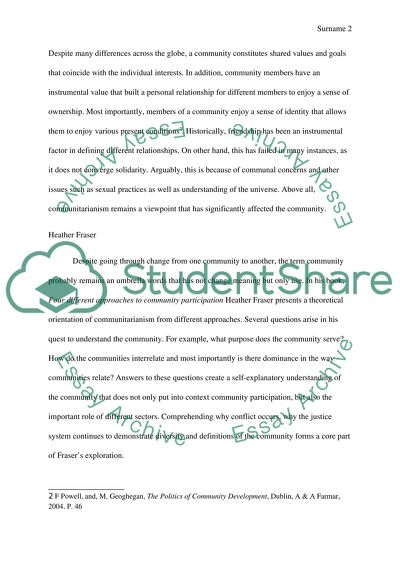Cite this document
(“Heather Fraser, Mae Shaw and Paulo Freires View of Communitarianism Essay”, n.d.)
Heather Fraser, Mae Shaw and Paulo Freires View of Communitarianism Essay. Retrieved from https://studentshare.org/social-science/1667849-heather-fraser-mae-shaw-and-paulo-freires-view-of-communitarianism
Heather Fraser, Mae Shaw and Paulo Freires View of Communitarianism Essay. Retrieved from https://studentshare.org/social-science/1667849-heather-fraser-mae-shaw-and-paulo-freires-view-of-communitarianism
(Heather Fraser, Mae Shaw and Paulo Freires View of Communitarianism Essay)
Heather Fraser, Mae Shaw and Paulo Freires View of Communitarianism Essay. https://studentshare.org/social-science/1667849-heather-fraser-mae-shaw-and-paulo-freires-view-of-communitarianism.
Heather Fraser, Mae Shaw and Paulo Freires View of Communitarianism Essay. https://studentshare.org/social-science/1667849-heather-fraser-mae-shaw-and-paulo-freires-view-of-communitarianism.
“Heather Fraser, Mae Shaw and Paulo Freires View of Communitarianism Essay”, n.d. https://studentshare.org/social-science/1667849-heather-fraser-mae-shaw-and-paulo-freires-view-of-communitarianism.


